PFAS
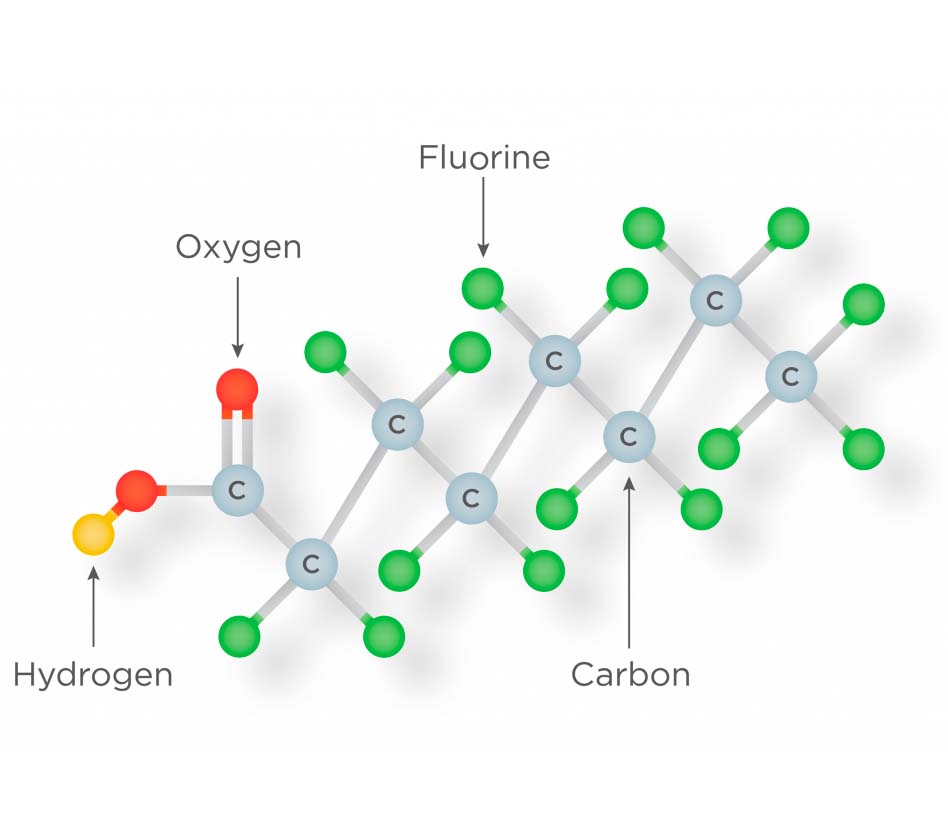

PFAS
Per and polyfluoroalkyl substances are persistent synthetic compounds used in a variety of industrial and consumer product applications including non-stick cookware and firefighting foams. The presence of PFAS compounds in source water and drinking water is of increasing public concern due to their widespread use and environmental persistence. The resources included on this page provide information and guidance for water professionals challenged to address this contaminant.
AWWA/AMWA File Petition for Review of New PFAS Rule
AWWA and the Association of Metropolitan Water Agencies (AMWA) on June 7 filed a petition with the U.S. Court of Appeals for the District of Columbia Circuit to review U.S. EPA’s Final PFAS Drinking Water Rule.
AWWA and AMWA share EPA’s goal of protecting public health. The associations are concerned, however, that EPA did not rely on the best available science and the most recent occurrence data and used novel approaches as the basis for portions of the rule. The petitioners believe the rule underestimates nationwide costs and adds to affordability challenges without achieving the public health outcomes we all seek.
Media inquiries can be directed to media@awwa.org.
PFAS Reply Brief (.pdf) (Filed Feb. 20, 2026)
Response to Intervenors’ Motion (.pdf) (Filed Dec. 3, 2025)
Statement from AWWA and AMWA on EPA’s motion for partial vacatur (Sept. 12, 2025)
Statement from AWWA and AMWA on EPA’s PFAS drinking water standard announcement (May 14, 2025)
EPA motion for partial vacatur (.pdf) (Filed Sept. 11, 2025)
AWWA comments to National Drinking Water Advisory Council on PFAS rule revision (.pdf) (Submitted July 21, 2025)
AWWA v EPA AMWA AWWA Opening Brief (.pdf) (Filed Oct. 7, 2024)
AWWA-AMWA statement on filing PFAS opening brief (Oct. 7, 2024)
Statement of issues (.pdf) (filed July 8, 2024)
AWWA/AMWA joint statement (June 7, 2024)
View the Petition (.pdf) (filed June 7, 2024)
AWWA comments on the PFAS proposal (.pdf)
AMWA comments on PFAS proposal
FAQ on AWWA/AMWA Petition
Hazard Index Fact Sheet (.pdf)
Costs Fact Sheet (.pdf)
Advertisement
PFAS Resources


PFAS Treatment Evaluation Framework for Approaching Permit Plan Approval
A supplement to existing standards for the design of granular activated carbon and single-pass ion exchange contactors, this framework provides a path to expediting treatment option evaluation needed for drinking water PFAS treatment permitting. AWWA appreciates the contributions of the many subject matter experts, manufacturers, and state regulators involved in preparing this document.
AWWA B604-18 Granular Activated Carbon
AWWA B104-24 Single-Use Ion Exchange Treatment for Trace Contaminant Removal
Read the Report
GIS Map and Compendium of Case Studies
This resource includes a GIS Map and Compendium of Case Studies of utilities that are in varied stages of adding PFAS treatment systems to their water treatment plants of utilities that are in varied stages of adding PFAS treatment systems to their water treatment plants.
View the Map
Per- and Polyfluoroalkyl Compounds
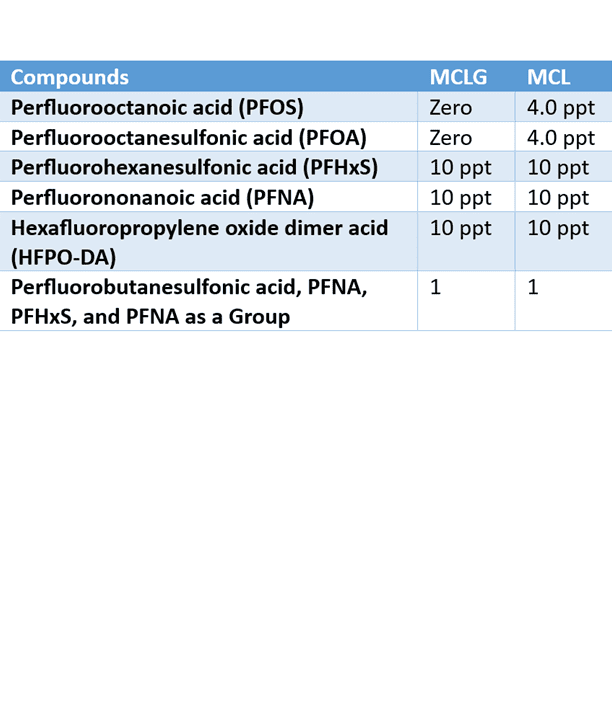

National Primary Drinking Water Regulations for PFAS
On April 26, 2024, the U.S. EPA published the national primary drinking water regulation (NPDWR) for PFAS. The rule sets drinking water standards for six PFAS and establishes monitoring and public notification requirements for water systems. Systems not subject to reduced monitoring for these compounds will be required to monitor on a quarterly basis and will need to maintain a running annual average (RAA) below the MCL. Systems are required to be in compliance with the MCLs by April 26, 2029. For more information about the requirements of the final rule, see the recent DC Beat and AWWA Advisory. AWWA also released a statement on the rule.
Correcting PFAS Myths: Misperceptions Risk Higher Clean-up Costs for Water Ratepayers
In a nationwide press conference led by the Water Coalition Against PFAS, public water sector utilities united to address prevalent misconceptions concerning the cleanup of persistent PFAS compounds, and release a comprehensive report that refutes these myths. The report, titled “Correcting PFAS Myths: Misperceptions Risk Higher Clean-up Costs for Water Ratepayers” incorporates evidence from coalition members, definitively revealing that the yearly expenses for PFAS remediation will surpass Congress and EPA’s expectations. The study highlights that the projected annual costs for PFAS cleanup could potentially be significantly greater than the current EPA estimates that are guiding regulatory actions.
Read the Report
Technical Resources
Reports
Summary of PFAS Toxicological Research
With more than 1,200 PFAS used commercially, it’s a challenge to characterize risks of PFAS as research continues to be completed.
Read the Report
Drinking Water Treatment for PFAS Selection Guide
PFAS removal from water is variable across a range of water treatment processes and influent water quality conditions.
Read the Report
Source Water Evaluation Guide for PFAS
Summarizes the qualitative and quantitative steps necessary to carry out a PFAS evaluation for a water system’s source water.
Read the Report
AWWA Briefing on PFAS
Provides information and guidance for water professionals challenged to address this emerging contaminant.
Read the Report
PFAS Cycle Infographic
This infographic provides a visual representation of how PFAS cycle through the environment.
View Infographic
Load More

Advertisement
Events With a Focus on PFAS
See All Events
Water Quality Technology Conference
Discover the latest science, research, and engineering and solutions to fight drinking water contamination.
November 15-19, 2026
Memphis, TN
Annual Conference & Expo
Join water heroes at one of the largest and most important global water gatherings.
June 21-24, 2026
Washington, D.C.
Related Resources
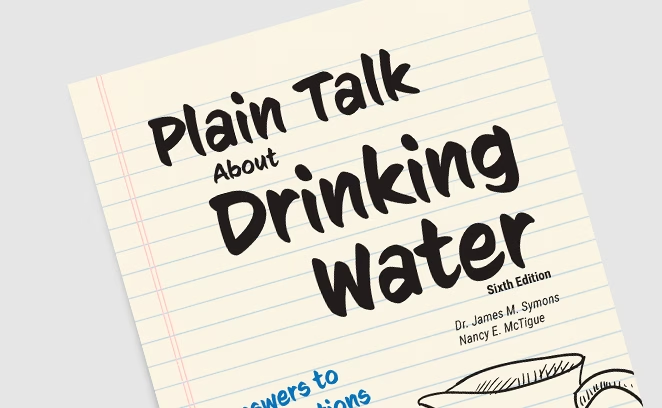
Plain Talk About Drinking Water, Sixth Edition
The first edition of this book was published more than 30 years ago. The goal of that book was to provide explanations for some of the questions that surround drinking water. Where does my tap water come from? How is it treated? Why does ice float? And to explain these things and more, in simple but factual language—using “plain talk.”
Read More
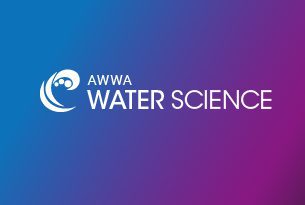
New developments in premise plumbing: Integrative hydraulic hydraulic and water quality modeling
Significant seasonal changes in chemical and microbiological water quality can occur in buildings at different fixture locations due to temperature and time dependent reaction rates.
Read the Article

Committee Report: Using Transient Hydraulic Models to Design Surge Control Devices
Water distribution systems should have a surge mitigation strategy in place to address the common occurrences of high- and low-pressure surges, which can sometimes be harmful to system infrastructure.
Read the Article

Operator Involvement Leads to Hydraulic Modeling Success
A firm deadline and a tight budget meant there was little room for error in a water district’s improvement project. Thanks to the expertise and innovative thinking of a cross-departmental team, the project results exceeded expectations.
Read the Article

CFD Modeling Optimizes Water Treatment Plant Performance
CFD modeling helped a colorado utility optimize the hydraulic efficiency of its water treatment plant.
Read the Article

Committee Report: Trends in Water Distribution System Modeling
This report discusses the results of the EMAC 2009 and 2013 surveys, the past and current modeling issues challenging utilities, and trends that will shape distribution network modeling.
Read the Article

AWWA Policy Statements
February 8, 2024 – US EPA Proposes Listing Nine PFAS as Hazardous Constituents under Resource Conservation and Recovery Act (RCRA)
The EPA has proposed listing nine specific PFAS as hazardous constituents under the RCRA law, including:
- Perfluorooctanoic acid (PFOA)
- Perfluorooctanesulfonic acid (PFOS)
- Perfluorohexanesulfonic acid (PFHxS)
- Perfluorononanoic acid (PFNA)
- Perfluorohexanoic acid (PFHxA)
- Perfluorodecanoic acid (PFDA)
- Perfluorobutanesulfonic acid (PFBS)
- Perfluorobutanoic acid (PFBA)
- Hexafluoropropylene oxide dimer acid (HFPO-DA)
According to the proposal, EPA has determined that these compounds have been shown in scientific studies to have toxic, carcinogenic, mutagenic, or teratogenic effects on humans or other life forms. The listing of these compounds as hazardous constituents will require corrective action for remediation of these PFAS as RCRA hazardous waste facilities and is considered a stepping-stone to the agency publishing a rule listing hazardous wastes based on the presence of these compounds.
AWWA submitted comments to the agency highlighting the need for clear regulatory action on PFAS polluters to protect sources of drinking water and the potential impacts to water systems if regulatory certainty is not provided. As noted in the letter, water systems are facing drinking water standards that will require the installation of carbon and ion exchange systems that concentrate PFAS in media that eventually becomes a waste. The EPA’s current PFAS actions together create long-term financial liability under the Superfund program for historical, ongoing, and future releases of PFAS by water systems while EPA’s interim guidance for disposing PFAS wastes does not provide clarity on how to feasibly mitigate those liabilities. The hazardous constituent listing creates more uncertainty for systems by painting a target on wastes that contain these compounds without defining a clear threshold of what levels of these PFAS constitutes a potential concern.
Statement for the Record of a Senate Committee on Environment and Public Works hearing entitled “Examining PFAS as a Hazardous Substance”
AWWA’s comments on Per- and polyfluoroalkyl substances (PFAS): Perfluorooctanoic acid (PFOA) and Perfluorooctanesulfonic acid (PFOS) National Primary Drinking Water Regulation Rulemaking
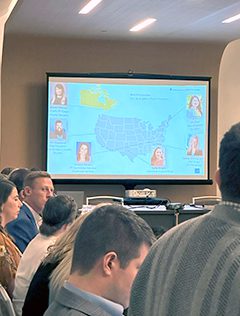

Technical Committee Engagement
AWWA members are recognized globally for their industry expertise and their generosity in sharing that expertise for a better world through better water. AWWA members participate in committee activities, developing conference programs, writing technical manuals, developing standards, creating educational content and contributing to AWWA publications. Committee members primarily interact through conference calls, emails, and face to face meetings at conferences and events.
Emerging Water Quality Issues
Organic Contaminants Control
Organic Contaminants Research
Advertisement


